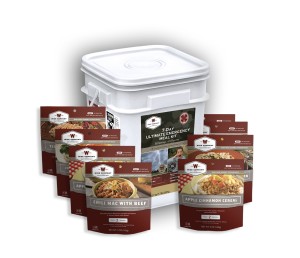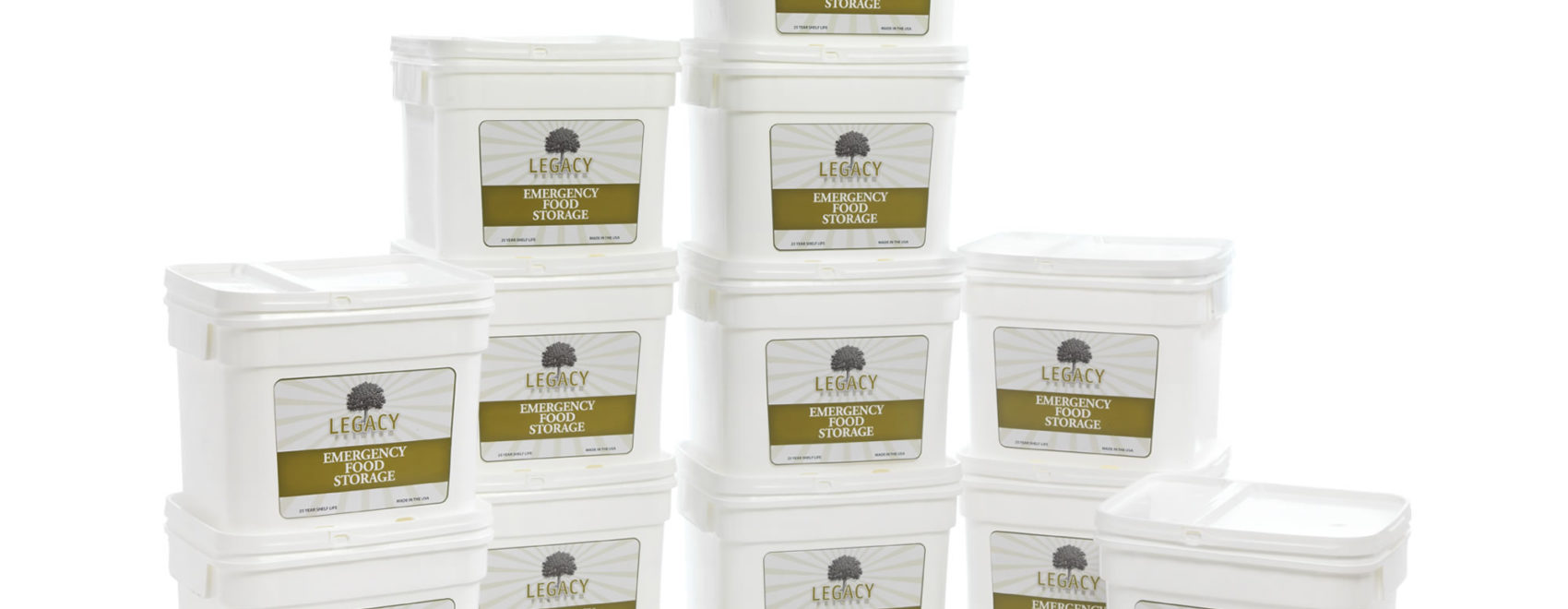Are All Food Storage Companies the Same?
Have you ever wondered why #17 at most Mexican restaurants is almost always Chile Rellenos? Or why the menus are eerily the same among Mexican restaurants from city to city and town to town? I have, because little things like that bother me, especially when it comes to my food.
I tackled this question years ago in a thesis paper I wrote while attending chef school. I was sure that I had stumbled upon the Mexican Food Mafia and was well on my way to a Pulitzer Prize after I exposed them. When in reality, what I found was a simple explanation, once I dug around and spoke with several food distributors.
As you might expect, a lot of Mexican restaurant owners and workers have problems speaking English. For this reason, multiple food distributors adopted a cookie cutter menu, with a set amount of ingredients that these restaurateurs could easily purchase and plug-in to get their restaurants up and running easier. To my dismay, I found nothing nefarious about this.

It’s Not Quite That Simple in the Food Storage Industry.
The difference between the “Mexican Restaurant Mafia” scenario and the “Food Storage Mafia” is that the food storage industry is not nearly as forth coming about their ingredients and suppliers as the former.
Which begs the question, why are food storage companies so secretive about their food suppliers and processes?
Top Three Reasons I Believe Food Storage Companies Are So Secretive:
- They have spent a good amount of time and money sourcing quality food suppliers and techniques, and they do not wish to share this information with their competitors.
- They market their company as a “Food Company” when the truth is they are simply a marketing company that re-labels other company’s products and they do not wish to be “outed.”
- They buy low priced ingredients from overseas food suppliers (like China) that have questionable quality guidelines that gives them an advantage in pricing their products.
I really have no problem with number one, or number two to some extent, as long as the company they white label or source through is reputable. It’s number three, and companies that use these ingredients that give me pause, as well as the manner in which these companies market themselves to the unsuspecting public.
What Is the Criteria for Reviewing Food Storage Companies?
Today there are literally dozens of companies, big and small, that supply the emergency/survival food market. In fact, their existence has a lot to do with the rapid growth of that market.
As people are becoming aware of the need to have emergency supplies, these companies are busily advertising and promoting their products as convenient and cost-effective. It’s supply and demand working hand in hand to grow a big new market. However, all food storage companies are not the same and they each have varying standards of food quality, safety, and packaging.
Mainly we’ll concentrate our reviews on profiling the companies and their position in five key areas: nutrition, packaging, quality control, price and value.
To better understand the differences between food storage companies
you must first understand the business models of this industry.
|
Business Model |
Description |
Example |
|
1. Retail / Reseller |
A company that buys their products at wholesale prices, marks them up and retails them. |
Survivalist101.com |
|
2. White Label Retailer |
A company that buys their product, usually from the same companies as above, and puts their private label on the product. |
FoodInsurance.com |
|
3. Builder / Retailer / Wholesaler |
A company that buys pre-designed ingredients from other companies (like dehydrated recipes and freeze dried foods), they then mix and package these products under their own brand. Then, retails their brand and also wholesales it to white labelers and resellers. |
Wise Company Foods |
|
4. Food Producers / Retailers / Wholesalers |
A company that sources raw ingredients, cooks, dehydrates and freeze dries their own products and retails them under their own brand; but, also wholesales and white labels their products to the above business models. |
Oregon Freeze / Mountain House |
None of these business models are bad in and of themselves. How they market their products is usually wherein lies the rub. Specifically, number two and number three are the most likely business models to mislead their customers as to how their products are made.
Don’t get me wrong. These business models are all sound business models, and mostly run in a way that is totally above board. In fact, most of my personal food storage comes from a company that operates as a Builder/ Retailer / Wholesaler. I happen to know where they source their raw products and trust them to be a credible company.
This company simply sources the best predesigned ingredients they can find at a lower price than they can produce in house. Not to mention, they can avoid having to buy a million dollars worth of equipment to produce freeze dried or dehydrated food. So where’s the issue Skippy?
The Issue is Credibility Accountability and Solvency.
All of these companies are selling 20-25 year products that have been determined, by lab tests not experience, to be viable 25 years from now. Most of these companies are under ten years old, and none of them, bar one, have products than are 25 years old to back up their claims.
Many of these companies will say that their products, and companies, are much older than they actually are by using the company that supplies them their ingredients as the reference point. So “technically” their products have been around through their distributor for xxx number of years; but the specific mixture of products that they use have not. Not to mention their company.
For example, if I decided to build my own motorcycle brand, let’s call it the URIDE Bike. If I buy my motors from Honda, my fenders from Harley and my frame from Indian and assemble my own bike I might say that this bike is built from 50 year old technology. However, the truth is, I have no idea how this combination of products will work together over a span of 20 years.
Whereas in the food storage industry, some might and many do, outright say, or imply that there finished product has been around for twenty years or longer. They are basing this on the age and creditability of the companies that supply them with their pre-processed freeze dried food.
When a food storage company, say Acme Food Storage, buys fruits from one company, veggies and meats from another company and dairy from another company and blend these products together to create their own finished product; THEY, not the food suppliers assume the responsibility for the product that they produce.
Using the motorcycle example above. If I sold you a motorcycle under the URIDE brand name, and you had problems with the engine, you would come to me to fix it, not Honda, even though they built the engine. By assembling and branding my on bike, the URIDE, I assume all risks for your repairs, and I am the only company that you have recourse with.
The USDA just recently issued a food recall for dairy products that may cause people to become ill if consumed in the manor it was being represented. If Acme Food Storage buys sells these products under their own label, you have to deal with Acme to make it right.
If ACME is a relatively young food corporation; do you think they have the resources to deal with a million dollar food recall? Or is it more likely that they will simply bankrupt the tainted company and re-surface as another company?
We are still reviewing most companies and will publish them as we verify the information .


Leave a Reply